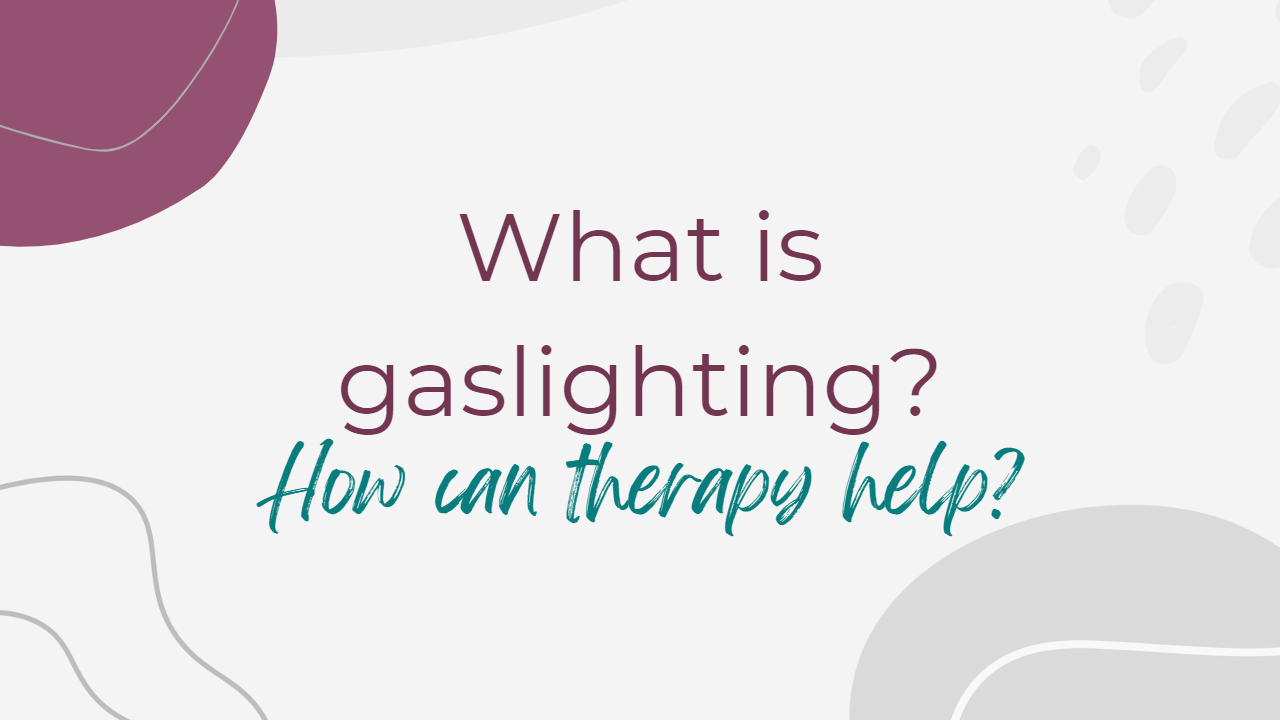What is Gaslighting? How Can Therapy Help?
Dec 15, 2022
Gaslighting is a form of psychological manipulation that can have a damaging effect on the mental health of victims. It occurs when one person or group systematically manipulates another person or group to gain power and control. Gaslighting can lead to feelings of confusion, self-doubt, anxiety, and depression. Fortunately, therapy can help those who have been affected by gaslighting to recognize it and address its effects to recover from the damage it has caused. In this blog post, we’ll explore gaslighting and how therapy can help those subjected to it.
Definition of Gaslighting
Gaslighting is used to confuse, disorient, and control another person. It can be used in many relationships, including romantic, family, or work. The term originates from the 1944 film Gaslight, where a husband tries to convince his wife she’s mentally unstable by making her believe she is wrong about what she’s seeing and hearing.
When someone experiences gaslighting, they may feel isolated, confused, and helpless. They might start to doubt their own experiences, memories, and thoughts. This can lead to anxiety, depression, and other mental health problems.
Counseling can help those who have been experiencing gaslighting in a variety of ways. A therapist can provide emotional support and help the individual identify and cope with the effects of gaslighting. Therapists can also work to help the person recognize the signs of gaslighting when it occurs and how to protect themselves from further manipulation. Additionally, counselors can provide guidance on how to confront someone engaging in gaslighting behaviors and create healthy boundaries.
Overall, counseling can be a valuable tool for those who have experienced gaslighting. With professional guidance, individuals can build resilience, regain self-confidence, and improve their mental health.
The Impact of Gaslighting
The mental health effects of gaslighting are long-lasting. They can cause a person to experience extreme distress, depression, anxiety, and post-traumatic stress disorder (PTSD). In addition, people who share gaslighting may become withdrawn and avoid engaging in activities that used to bring them joy. They may also have difficulty trusting people and forming healthy relationships. The psychological damage of gaslighting can even lead to suicidal ideation.
It is essential to recognize the signs of gaslighting to protect yourself or seek help for someone else. A therapist can offer an unbiased perspective and help you process what is going on so that you can take steps to protect yourself. Therapy can also help you identify the gaslighting behaviors to prevent them from occurring again.
How Therapy Can Help
Gaslighting can be an incredibly traumatic experience, making it difficult to trust your thoughts, feelings, and perceptions. Therapy can help those affected by gaslighting in many ways. First, it can allow gaslighting victims to process their feelings and experiences in a safe space with a non-judgmental and understanding therapist. This can provide comfort and relief as individuals begin to understand their experiences.
Therapy can also help individuals develop strategies for how to cope with their feelings and recognize signs of gaslighting when it starts to happen again. It can also help with communication techniques when talking to the person who is gaslighting them or with methods for setting boundaries and expressing their needs.
Additionally, therapy can be beneficial for addressing any mental health issues that may be present due to gaslighting. These issues could include depression, anxiety, low self-esteem, or post-traumatic stress disorder (PTSD). A therapist can help individuals identify these issues and help them find healthy coping strategies to address them.
Ultimately, therapy can provide the support and guidance needed to help individuals recover from gaslighting and reclaim their sense of self.
Gaslighting is a form of psychological abuse in which the abuser attempts to manipulate their victim into questioning their reality and sense of self. This manipulative behavior can leave lasting effects on mental health, making it difficult for survivors to recognize the truth or trust themselves.
Thankfully, therapy can help those who have been affected by gaslighting. By providing a safe and supportive environment, therapists can help survivors of gaslighting identify their abuser’s manipulative behavior, challenge and process any false beliefs about themselves or their reality, and build skills for increased self-confidence.
If you want to better understand gaslighting and how to cope with its effects, we have created a free guide to help you get started. Our guide outlines what gaslighting is, how to identify it, and steps you can take to protect your mental health and well-being. Download it today to learn more!
Subscribe to the newsletter and get your free Better at Boundaries Workbook
By subscribing to our newsletter, you'll receive a monthly selection of tools, tips, and journal prompts to help you on your healing journey. You'll also be the first to know when I have availability for new clients.
We respect your privacy. We will never sell your information, for any reason.

